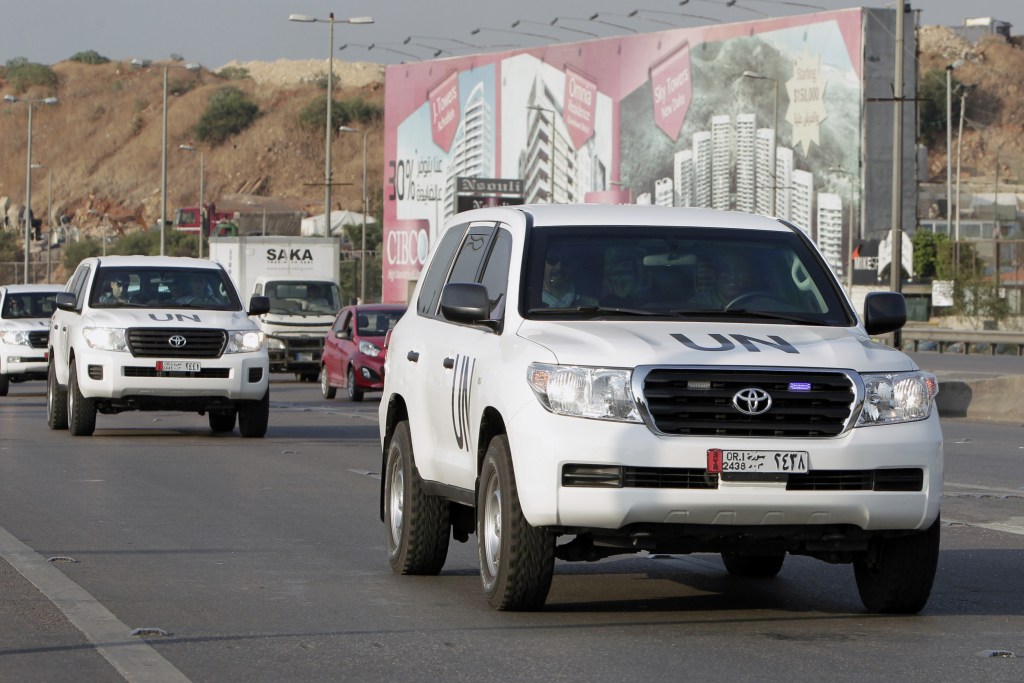DAMASCUS, Syria — Inspectors entrusted with the enormous task of overseeing the destruction of Syria’s chemical weapons stockpiles began their mission Monday, flying to Lebanon en route to Syria, where their first priority will be to help the country scrap its ability to manufacture such arms by a Nov. 1 deadline.
Syria’s Foreign Minister Walid al-Moallem, meanwhile, said the government refuses to sit down for talks with members of the main Western-backed opposition groups, putting a damper on U.S.-Russian efforts to hold a peace conference with the two sides by mid-November.
President Bashar Assad has said the government won’t talk to armed rebels and militants – but al-Moallem’s remarks seem to have expanded the government’s list of undesirable talking partners. Previous efforts at bringing the two sides together for talks have failed, and it was unclear what incentive the regime has to come to the table now that the threat of an imminent U.S. military strike has been lifted.
The Russian initiative that averted the strike led to the adoption of a U.N. Security Council resolution to have Syria dismantle its estimated 1,000-ton chemical arsenal by mid-2014. The resolution, passed after two weeks of negotiations, marked a major breakthrough in diplomatic efforts since the Syrian uprising began in March 2011.
It also calls for consequences if Syria fails to comply, although the Security Council would have to pass another resolution to impose any penalties.
On Monday, 20 inspectors from the Netherlands-based Organization for the Prohibition of Chemical Weapons landed in Beirut on a private jet, but did not speak to journalists, Lebanese airport and security officials said. The group is scheduled to travel to Syria on Tuesday morning to begin its work.
Inspectors at The Hague said Sunday their first priority is to help the country scrap its ability to manufacture chemical weapons using every means possible.
That may include smashing mixing equipment with sledgehammers, blowing up delivery missiles, driving tanks over empty shells or filling them with concrete, and running machines without lubricant so they seize up and become inoperable.
The U.N. resolution also endorsed the roadmap for a political transition in Syria adopted by key nations in June 2012, and called for an international conference to be convened “as soon as possible” to implement it.
U.S. and Russian efforts are also focusing on holding that conference, perhaps as soon as November in Geneva.
But al-Moallem’s comments put a damper on those efforts.
Copy the Story Link
Send questions/comments to the editors.



Success. Please wait for the page to reload. If the page does not reload within 5 seconds, please refresh the page.
Enter your email and password to access comments.
Hi, to comment on stories you must . This profile is in addition to your subscription and website login.
Already have a commenting profile? .
Invalid username/password.
Please check your email to confirm and complete your registration.
Only subscribers are eligible to post comments. Please subscribe or login first for digital access. Here’s why.
Use the form below to reset your password. When you've submitted your account email, we will send an email with a reset code.